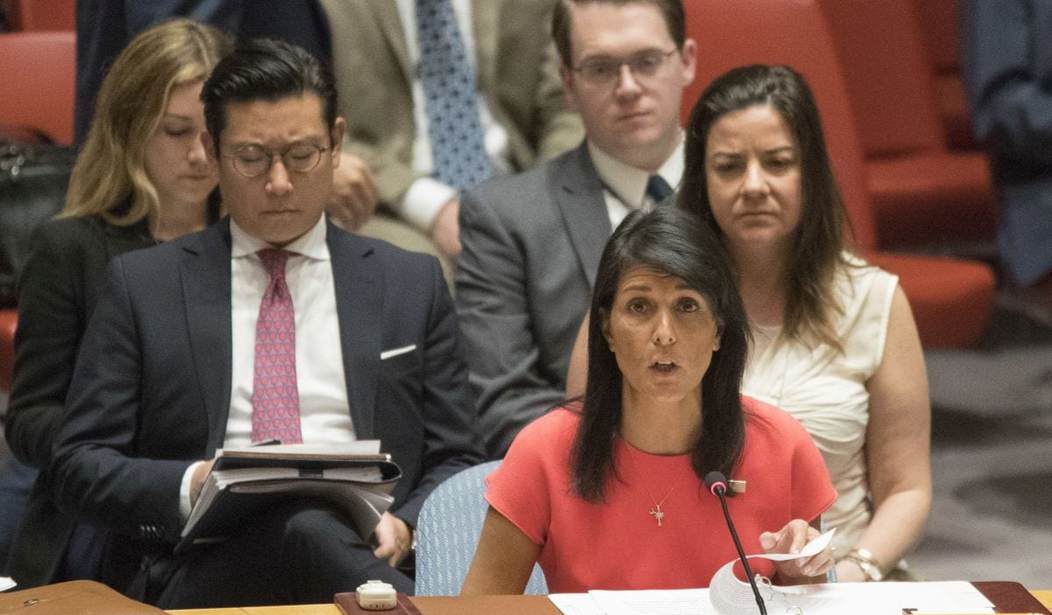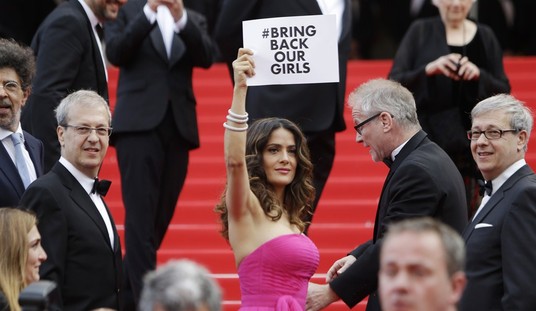The Trump administration is prepared to offer a resolution on Monday before the UN Security Council that would ban all imports of oil to North Korea as well as prevent any textile exports. The sanctions would also freeze all assets of the North Korean government and its leader Kim Jong-un, and prohibit North Korean citizens from working overseas.
The sanctions were developed without the input or assistance of Russia or China — both of whom have criticized the U.S. for imposing any sanctions at all on North Korea. This risks a veto from either power and would bring the U.S. and North Korea closer to war.
The speedy U.S. action is prompted by Washington’s concern over what North Korea leadership claims was a hydrogen bomb test last weekend, as well as its recent missile launch over Japan, several diplomats said.
Britain’s U.N. Ambassador Matthew Rycroft stressed that “maximum possible pressure” must be placed on North Korea to give diplomacy a shot at ending the ongoing crisis.
Rycroft said a proposed ban on all oil imports and textile exports, as well as prohibiting North Koreans from working overseas — which helps finance the country’s nuclear program — was “a proportionate response” to North Korea’s “illegal and reckless behavior.”
Under the U.S. plan, all foreign financial assets of the government and its leader, Kim Jong Un, would be frozen. The U.S. also identified nine North Korean ships that failed to comply with the previous U.N. resolutions. The U.S. proposal would authorize any U.N. member state to stop these vessels on the high seas without their consent and use “all necessary measures” — which in U.N. language includes force — to carry out an inspection and direct the vessel to a port.
The U.S. demand for the Security Council to take swift action was viewed as a clear gauge of how seriously the Trump administration views the situation in North Korea.
“My sense is they believe that they don’t have time for a delicate diplomatic dance,” Professor Joseph DeThomas of Pennsylvania State University, a former U.S. ambassador and State Department official who dealt with North Korea, told the Associated Press in a telephone interview Friday. “The other possibility … is they want to see the color of China’s money.
“They’re putting down the marker here and saying, `OK, Are you prepared to do what is necessary to put pressure on North Korea at a moment when we’re simply out of time?”‘
In essence, it’s time for China, especially, to put up or shut up. This is perhaps the final round of diplomatic moves the world can make to avoid a conflict and China continues to refuse to put the kind of pressure on North Korea that would bring them to heel.
Both China and Russia appear willing to negotiate the sanctions package.
China and Russia appeared willing to negotiate after all 15 Security Council members discussed the draft Friday, according to diplomats who spoke on the speaking on condition of anonymity because discussions on the resolution have been private.
However, the outcome of those negotiations remained unclear, as did whether any modifications proposed by Russia or China were acceptable to the United States.
A brief statement from the U.S. Mission to the United Nations late Friday said: “This evening, the United States informed the U.N. Security Council that it intends to call a meeting to vote on a draft resolution to establish additional sanctions on North Korea on Monday, September 11.”
Russia and China will try to water down the sanctions in return for their affirmative vote. But U.S. Ambassador Nikki Haley, whose performance these last few months has been nothing short of brilliant, might be able to persuade the two powers to abstain, thus allowing the sanctions package to pass.
Kim must realize he is running out of time. Does he have it in him to offer some small gesture of peace to stave off disaster?
If history is any guide, don’t bet on it.










Join the conversation as a VIP Member